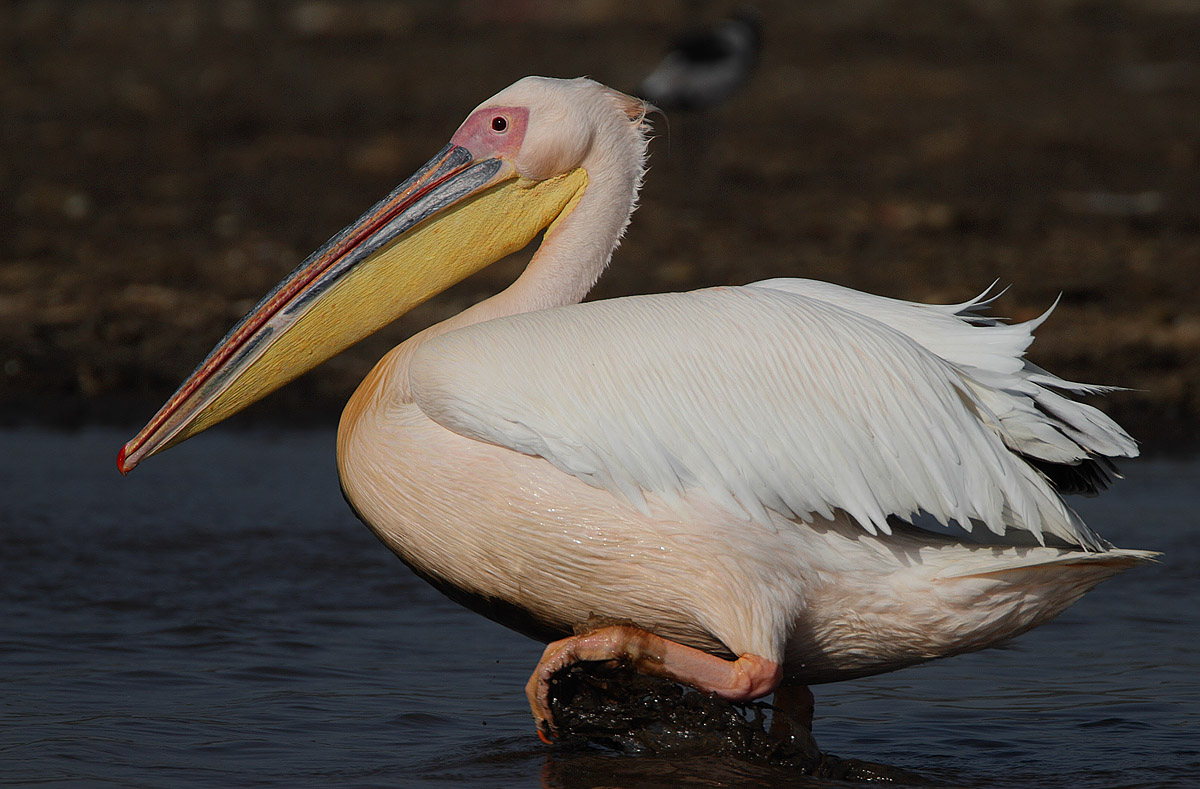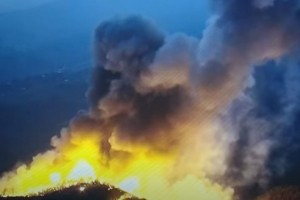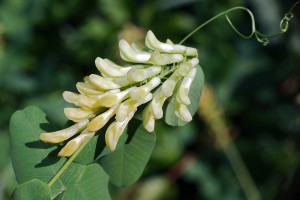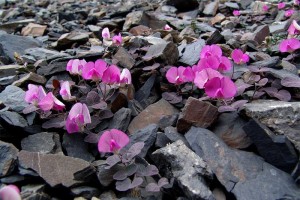Great white pelican: Red Data Book of Armenia

Pelicans — Pelecanidae
Status. A rare and threatened species of decreasing population. Listed in the Red Data Book of the former USSR. Listed in the IUCN Red List of Threatened Species (ver. 3.1) as Least Concern. According to IUCN criteria categorized as Vulnerable B1ab(iii).
Distribution. As a nesting species, occurs in Southeastern Europe, Asia Minor, Central Asia, Russia, Azerbaijan, China.
Distribution in Armenia. As a casual migrant, it rarely occurs in the Lake Sevan basin, on the Lake Arpi, lakelets of the Armash and adjoining fish ponds. During migrations it is recorded in the riparian areas of the Lake Sevan beside the former Lake Gilli and on the fish farms of the Armash and nearby lakelets.
Habitats. Open, deep and deprived of vegetation areas of the lakes Sevan and Arpi. In summer pelicans regularly visit the fish farms of the Ararat Valley for feeding.
Biological traits. Usually nestles in colonies on secluded lakes with open, plain shoreline covered with reedbeds. The clutch consists of 2–3 eggs of size 90–106 mm. The brooding period is 32–35 days. Hatchlings are usually naked and helpless, but grow fast and reach an adult’s body size by the age of 2.5 months. Does not nestle in Armenia.
Population size and its trends. Before, during migrations the population numbered 1–2.5 thousand individuals. Then, subsidence of the Lake Sevan had led to the freeze–up of the whole lake in winter. A significant number of fish ponds in the Ararat Valley have dried out. As a result, the pelican almost no longer occurs in the Lake Sevan and the Armash holds no more than 20–30 individuals during the feeding period in summer. Captive breeding is undertaken in the zoos of Berlin, Basel, Tel Aviv.
Major threats. In the Ararat Valley, in summer pelicans are chased by fish farmers and in winter they are jeopardised by poaching.
Conservation measures. Listed in Appendix II of the Berne Convention. Protected in Sevan National Park and Lake Arpi National Park. Personnel of the Armash fish farms are involved in efforts on conservation awareness–raising. It is essential to estimate population size and to raise the fish farmers’ awareness about the importance of pelican conservation.
Suggestions
 The Ministry of Environment sent a letter international partners to draw their attention to the real danger of environmental disasters as a result of Azerbaijan's large-scale aggression towards the territory of Armenia
The Ministry of Environment sent a letter international partners to draw their attention to the real danger of environmental disasters as a result of Azerbaijan's large-scale aggression towards the territory of Armenia
 The Minister of Environment addressed a letter to international organizations and partners
The Minister of Environment addressed a letter to international organizations and partners
 ECOCIDE ALERT IN THE SOUTHERN CAUCASUS! White phosphorous munitions are dangerous chemical weapon
ECOCIDE ALERT IN THE SOUTHERN CAUCASUS! White phosphorous munitions are dangerous chemical weapon
 Vicia pisiformis: Red Data Book of Armenia
Vicia pisiformis: Red Data Book of Armenia
 Vavilovia formosa: Red Data Book of Armenia
Vavilovia formosa: Red Data Book of Armenia












